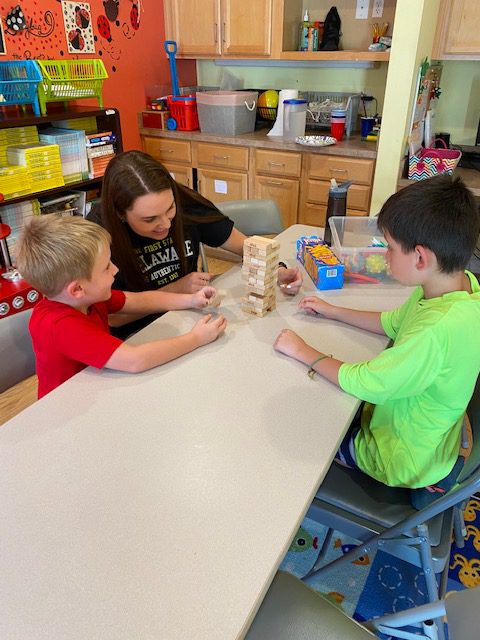
Supporting Kidds: Because “No Child Should Ever Grieve Alone”
Supporting Kidds is filling a critical need: supporting bereaved children. It is normal for adults to experience and cope with grief at some point. Children, on the other hand, are not supposed to lose close family members. As a result, they may not receive the specialized help they need to assist them in the grieving process.
Supporting Kidds provides that assistance, helping kids to understand and process their situation. The critical services offered by this organization are necessary for bereaved children to go on to lead healthy, productive lives. Helping kids grow into successful adulthood is a mission we share, and we were grateful we could lend a hand through our small grant program.
We spoke with Supporting Kidds Executive Director Louise Cummings to find out more about this work:
Kars4Kids: Tell us about your demographic. Who are the children you serve?
Louise Cummings: Our target population includes grieving children of all racial, ethnic and socio-economic backgrounds, ages 5-18 who are at risk for complicated grief reactions due a limited capacity of family and community support. Kidds has two core programs: Healing Pathways (“HP”) support groups and Guiding Pathways (“GP”) individual therapy. Our core programs allow us to accomplish 3 things: (1) to intervene to reduce the current suffering of grieving children and their families/caregivers; (2) to prevent development of behavioral and emotional problems that are associated with unresolved grief; (3) to empower the community to support children and their families in the grieving process.

Kars4Kids: You came onboard as interim executive director of Supporting Kidds in 2021. Can you talk about what made you elect to become involved with this nonprofit?
Louise Cummings: My husband was killed in the line of duty April 26, 2017. He was a Delaware State Trooper. When I heard that individual counseling was ending, I knew I needed to help.
Supporting Kidds was established as a non-profit organization in 1989 (33 years ago), and is one of the earliest organizations in the country specifically designed to serve grieving children. In 2019, it was at risk of being closed and had been acquired by a larger nonprofit. The new structure made Kidds a program vs a non-profit that provided many types of programs. In 2020, I stepped in with an amazing team of volunteers and restored Kidds to independent non-profit status again with official separation from the other nonprofit on Feb 1, 2021.
I am now the Executive Director as of July 1, 2022. We received funding from the Longwood Foundation to help with capacity building and secure my position as a paid position. (I had been volunteering as Interim ED.)

Kars4Kids: Supporting Kidds offers assessments and therapy for grieving children. What types of behaviors are typically seen in grieving children? What are their issues, and what is the goal of therapy for these kids?
Louise Cummings: Obstacles to grief can set the stage for increased problems later in life, such as depression, anxiety, low self-esteem, difficult relationships, and a victim-orientation to living. We make our impact through our two core programs: Healing Pathways (support groups) “HP” and Guiding Pathways (individual counseling) “GP”. HP has 3 components: a 6-week curriculum-based group for the child and a caregiver (both must participate). Our school grief groups that follow this same 6-week model and curriculum but in the school setting with just the children and consent from caregivers. We also offer themed (art, yoga, nature) one-time support groups. The GP program offers guidance, coaching, and support to help children and families adjust to their new normal following a loss. Consultation, assessment, and individual and family support services help address the unique challenges and concerns of grieving families. GP program is intended to serve more fully those clients whose needs extend beyond what is addressed in the support group setting.
Childhood bereavement is a critical issue and increasing national priority, especially considering COVID-19. Delaware ranks 10th in the nation in childhood bereavement. Working closely with the National Association of Childhood Grief, The 2021 Childhood Bereavement Estimation Model reported (based on 2015-2019 data) an estimated 18,000 children in DE (1 in 11 or 9%) will lose a parent and/or a sibling by age 18; that number more than doubles to 43,000 by age 25. The problem surrounding the number of children grieving the loss of a loved one is of a grand magnitude in Delaware. Grief-related adversity is immediate when facing the loss of a loved one, issues at home, financial burdens, potential moves and/or loss of community and mental health concern. The cost of inaction is long-term. Unaddressed grief often leads to future mental health concerns, relationship difficulties, academic problems, reduced resilience / self-esteem and even early mortality.
The goal of our services is to provide a compassionate pathway to healing. For children to understand and be able to express their feelings and emotions and learn healthy coping mechanism that will carry them into adulthood.


Kars4Kids: You offer support groups for grieving children and their families. What are the benefits of such groups?
Louise Cummings: Support groups allow our children and families to know they are not alone. We provide a safe space to express your feelings and we teach them that feelings are neither good nor bad, they just are. Each person has their own grief journey and there is not right or wrong way to grieve. Groups present a community where the children can relate to one another and see they are not alone. There is comfort in knowing that other peers are experiencing some of the same things. For caregivers, the groups offer support and guidance in assisting the children with their grief journey and understanding children grieve, and it may look different than how adults grieve, but is still valid.

Kars4Kids: Supporting Kidds, as its name suggests, is about helping grieving children. Why then, is it important to involve the entire family? What purpose does this serve?
Louise Cummings: I always say to have healthy kids you need healthy grownups. Many adults do not know how to talk about grief and are not comfortable discussing emotions amongst other adults, never mind children. It takes a united effort for a family to process grief. Everyone had a different relationship with the deceased and everyone will have different emotions surrounding the death. It is important that the family understand that each person in their home and in their family will react and feel differently and that is normal. Having empathy, understanding and respecting each other’s grief journey is important to healing.
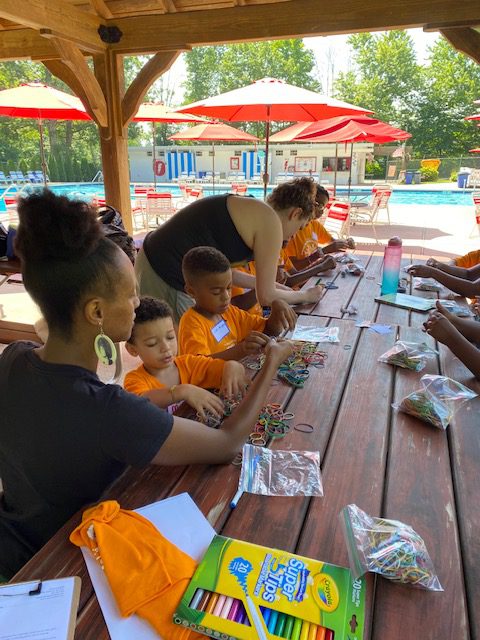
Kars4Kids: What is the Supporting Kidds philosophy on dealing with grief?
Louise Cummings: Kidds believes grief is not an illness to be treated; it is a human process to be experienced. The main goal for Healing Pathways is to help children and teens understand the normal grief process and to provide a safe space where they can develop positive coping skills and a sense of community. This is achieved through group discussion, art, movement activities, games, and journaling. Along with a curriculum that guides children along on their grief journey. Children are given opportunities to support each other on their grief journey, encouraged to build social supports and a greater sense of purpose and self-empowerment. Caregivers learn about the normal grief process as well as developmentally appropriate ways to support their children though group discussion. The HP support group program includes:
- Healing Pathways 6-week bereavement support group
- Pathways Through Life 4-week bereavement support group
- Themed grief support groups include:
- Yoga and Grief
- Art and Grief
- Music and Grief
- Memorials and Memories
- Memories for Moms
- Dad’s Day Memories
- Back to School Night
- Coping with the Holidays
- Grandparents Day Memories
- Coping with COVID
The primary philosophy of GP is that grief is a normative process that can be aided by support and information provided to bereaved individuals in a knowledgeable and caring environment. The GP program offers guidance, coaching, and support to help children and families adjust to their new normal following a loss. We recognize that while grief is normal process and not necessarily indicative of a need for mental health intervention, families often face several challenges that complicate the grief process. Consultation, assessment, and individual and family support services help address the unique challenges and concerns of grieving families. The services can help children and their families find ways to make sense of the losses they have experienced, while addressing the behavioral concerns and bolstering the communication and coping skills necessary to help manage current and future stressors. The GP program is intended to serve more fully those clients whose needs extend beyond what is addressed in the support group setting.
Supporting Kidds also provides Family Survival Kits – a kit for families that includes written information about children and grief that can be used right away, and School Survival Kits – a kit that provides information to enable schools to better meet the unique needs of grieving students. We offer educational seminars and discussion groups for families coping with death and educational programs for the larger community related to supporting grieving children. We have a grief specialized lending library, with books in English and Spanish. We provide consultation services and professional development workshops for professionals that may encounter grieving children, such as teachers, psychotherapists, funeral home staff, day care providers, religious leaders, pediatricians, nurses, and school counselors

Kars4Kids: You offer nature-focused support groups, too. How is Supporting Kidds using nature to heal grief in children?
Louise Cummings: In response to COVID, Kidds created Grounding Pathways – a nature-focused bereavement support group program that helps children and teens understand the normal grief process and provides a safe space where they can develop positive nature focused coping skills and a sense of community. Children and caregivers experience the healing power of nature combined with peer support and community. We teach the natural cycle of life though nature. All things created also die. It is a normal life process. Take a seed that is planted, watered, and cared for. It will grow to become food, a plant, a flower or whatever its intended purpose may be. However, no matter the growth through beautiful and challenging times the seed endures, it will eventually die. It is helpful to see the aspects of life through nature and to understand death is a normal, natural part of life. It is how we manage to understand the process and cope with the loss that is important.
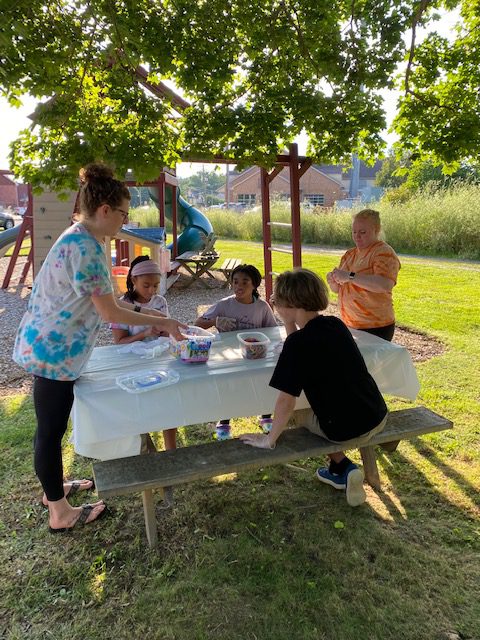

Kars4Kids: Supporting Kidds has several grief specialists on staff. What are some of the reasons that bereavement and grief are a mental health specialty? What makes grieving different than dealing with other types of trauma?
Louise Cummings: Bereavement and grief are a normal, common reaction to death and loss, they are not mental health diagnoses, which makes them a unique type of mental health specialty. Bereavement and grief also present differently in different people, there is no one way or “right” way to grieve. The relationship between the person who died and the grieving person was unique, so different deaths will be grieved differently depending on the relationship.
Grief changes over time, it is not just something that you just get over and are done with; it does not go away. For children specifically, their grief looks different at different developmental stages and also continues to change as does their understanding of other aspects of life. Grief also provides space or opportunity to create a “new normal,” rather than “getting back to normal.” Striving to “get back to normal” implies that grief has an ending, which just is not true. There is no way to ever have things the same after a significant death, so allowing the adaptation process of creating the new normal and acknowledging that grieving is a part of transition is helpful long-term.


Kars4Kids: How does child bereavement differ from the way adults grieve?
Louise Cummings: Children’s grief is unique to their own experience and relationship to the person who died. Children are not just little adults; they have had a limited amount of experience in the world to know how to handle difficult life situations. They look to the adults in their lives to figure out how to cope with the feelings they are having. It is common for adults to struggle to cope well after a significant death, so why would think it is any less difficult for children? It just looks different.
Children are able to compartmentalize differently than adults, they can be sad one minute and playing with friends as if nothing is wrong the next second, and that is okay. Many times, adults think that the grieving child is not grieving in the “right way,” either grieving too much or too little, when really it is important to meet the child where they are at and pay attention to their cues for what they need.
Children are often not included in the conversations about the death and adults tend to avoid talking about the person who died for concern that they will make the child’s grief worse. This results in children feeling lonely and confused and also gives them the impression that death is a topic that is taboo and something that cannot be talked about.
Adults grieve differently because there is often a different type of stress put upon them from the death, it could be role changes, financial issues, childcare issues, and etc. It is also very difficult for an adult to see their child having a difficult time and not be able to “fix it.” There is a ripple effect from the death; it’s not just the death itself. This extra stress tends to get in way of letting the adults grieve in the best way possible.
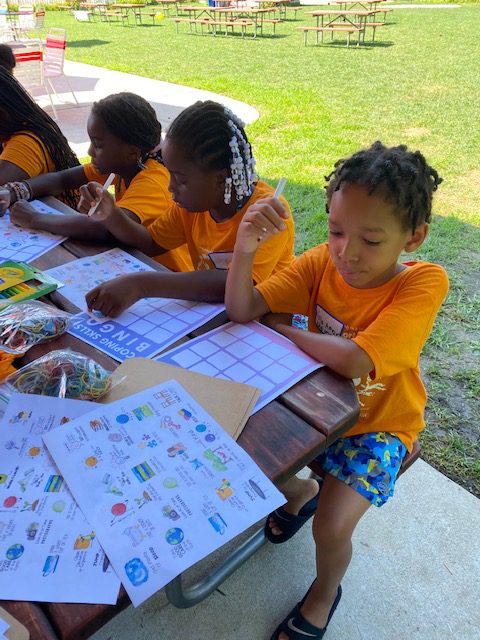
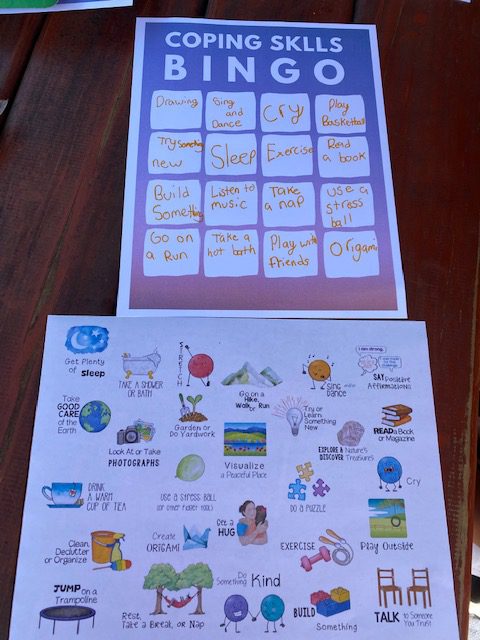
Kars4Kids: What’s next for Supporting Kidds?
Louise Cummings: We are working on sustaining our two core programs and serving as many children as we can because we believe no child should ever grieve alone.
